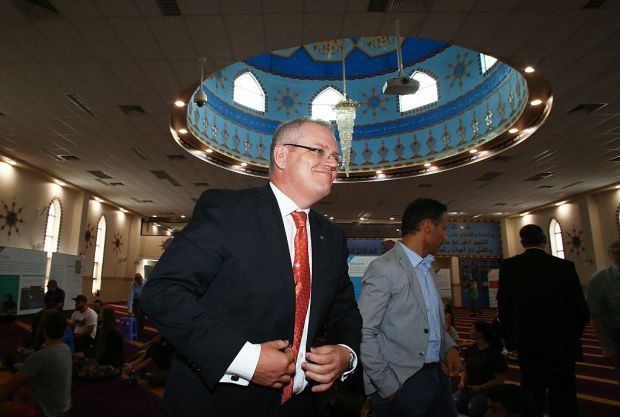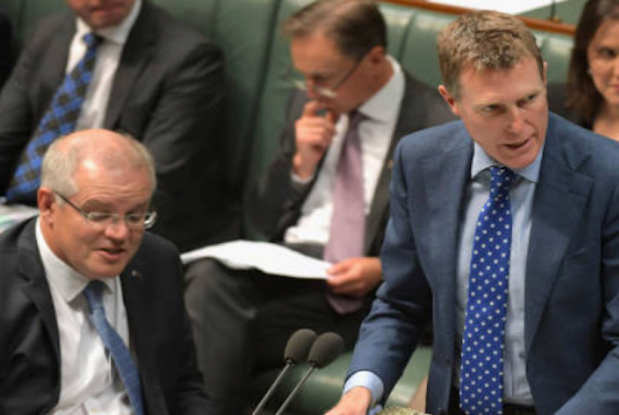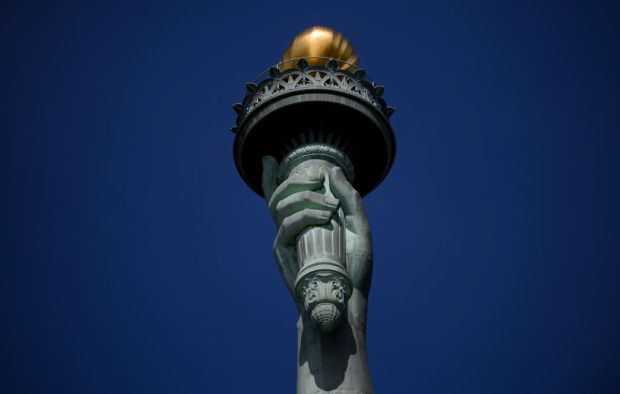Now that same-sex marriage has been legalised, there is a further need to recognise the right of religious individuals and organisations to express their views in the public square freely, and without the risk of lawsuits on grounds of alleged discrimination. Without such protection, intolerant activists may continue to use ill-conceived laws in a way that requires religious people to decide between compromising their moral convictions or face costly legal proceedings on the grounds that someone feels that some form of unlawful discrimination has occurred.
Whereas the Australian Constitution does not contain a declaration of rights, it does deal with some rights, and it has been found also to contain a few implied rights. Implied rights are those the High Court has declared to exist even though they are not explicitly mentioned in the Constitution. Such rights are deemed implicit in the basic law.
Among these rights deemed implied in the Constitution is a freedom of communication on political and public matters, which the court has found as a means of invalidating legislation on constitutional grounds. This freedom operates as a restriction on federal and state legislative powers, creating a corresponding immunity from legislative control.
Given the origins of the freedom in the constitutional provisions concerning representative and responsible government, the Court has taken a considerably broad view of what constitutes protected political communication.
In Australian Capital Television (1992) – a landmark case in which the court further implied freedom of communication with regards to political communication – Chief Justice Mason held that freedom of communication (and discussion) in relation to public and political affairs is an indispensable element in democratic society, arguing for the “indivisibility” of freedom of communication as related to democratic issues. As argued by him:
Freedom of communication in relation to public affairs and political discussion cannot be confined to communications between elected representatives and candidates for election on the one hand and the electorate on the other. The efficacy of representative government depends also upon free communication on such matters between all persons, groups and other bodies in the community …The concept of freedom to communicate with respect to public affairs and political discussion does not lend itself to subdivision.
Just how offensive political communication can be was considered by the High Court in Roberts v Bass (2002). During the course of that judgement (which dealt with false allegations made against a member of the South Australian Parliament) Justice Kirby famously stated that the implied freedom protects insults, abuse, and ridicule made in the process of addressing political matters. He also reminded that ‘political communication in Australia is often robust, exaggerated, angry, mixing fact and comment and commonly appealing to prejudice, fear and self-interest’. The natural implication is that no Australian law can prohibit speech that involves insults, abuse and/or ridicule, to the extent that such speech is political in character.
In addition, in Coleman (2004) the Court was asked to consider whether, in order to be consistent with the implied freedom, insulting speech of a political nature can be legally prohibited without significant qualifications. Standing in the majority, Justice McHugh held that insofar as the insulting words are used in the course of exercising political communication, ‘an unqualified prohibition on their use cannot be justified as compatible with the implied freedom.’ His Honour then observed that ‘insults are a legitimate part of the political discussion protected by the Constitution.’ Justices Gummow and Hayne not only agreed but reminded ‘insult and invective have been employed in political communication since the time of Demosthenes’. Justice Kirby concurred and argued that Australian politics has often included ‘insult and emotion, calumny and invective’, and that the constitutionally protected freedom must allow for this.
Naturally, debates relating to the role of religion in the public square can “be robust, exaggerated, angry, mixing fact and comment and commonly appealing to prejudice, fear and self-interest.” The natural implication is that no law can prohibit speech that involves political communication, even if such communication may be regarded as insulting, abusive or generating ridicule, to the extent where such a speech, religious or not, can be interpreted also as political speech in character. Of course, religious speech and political speech are quite often intertwined, and the decision in Coleman suggests that, apart from qualifications of the kind relied upon by the majority of the Court, ‘law which severely affects politically motivated religious speech will undoubtedly infringe the implied freedom of political communication.’
The implied freedom should be considered in light of the Constitution’s explicit protection of religious people and organisations against unwanted intrusions of the Commonwealth Government. Indeed, the provision which is found in section 116 of the Constitution is aimed at establishing a substantive limitation on the powers of federal Parliament to legislate with respect to religion. The object of the section is therefore to preserve the free exercise of religion in all its forms and manifestations, be they political or not. Section 116 provides:
The Commonwealth shall not make any law for establishing any religion, or for imposing any religious observance, or for prohibiting the free exercise of any religion, and no religious test shall be required as a qualification for any office or public trust under the Commonwealth.
In Church of the New Faith v Commissioner of Pay-Roll Tax (Victoria) (1983), Chief Justice Mason and Justice Brennan stated the following about religious freedom:
Freedom of religion, the paradigm freedom of conscience, is of the essence of a free society. The chief function in the law of a definition of religion is to mark out an area within which a person subject to the law is free to believe and to act in accordance with his belief without legal restraint. Such a definition affects the scope and operation of s. 116 of the Constitution and identifies the subject matters which other laws are presumed not to intend to affect. Religion is thus a concept of fundamental importance to the law.
As to ‘free exercise of religion’, Latham CJ observed in Adelaide Company of Jehovah’s Witnesses Incorporated v The Commonwealth (1943):
[Section 116] refers in express terms to the exercise of religion, and therefore it is intended to protect from the operation of any Commonwealth laws which are done in the exercise of religion. Thus the section goes far beyond protecting liberty of opinion. It protects also acts done in pursuance of religious belief as part of religion.
The communication of beliefs has been regarded as an ‘indispensable incident’ to the exercise of religious freedom. Such communication involves the followers of any particular religion informing others about the values and beliefs of that religion. This may also include fierce criticism of other values, beliefs and practices, be they religious or secular. Indeed, this criticism may extend to saying that certain other values, beliefs or practices are not only wrong, but abhorrent and a violation of a ‘higher law’. In Adelaide Company of Jehovah’s Witnesses Incorporated v The Commonwealth (1943), Latham CJ noted with respect to religious beliefs:
Such beliefs are concerned with the relation between man and the God whom he worships, although they are also concerned with the relation between man and the civil government under which he lives. They are political in character, but they are none the less religious on that account. [emphasis added]
It cannot be overlooked that religion informs the views of many Australians about politics and government. Professor Adrienne Stone of Melbourne Law School explains that religious speech is in its nature quite often intertwined with ‘political opinions, perspectives, philosophies and practices’. According to Professor Nicholas Aroney of Queensland University, indeed, ‘religion, religious beliefs and religious practices (as well as irreligious beliefs) not infrequently inform, or are tied up with, political perspectives, philosophies and practices’.
If religious and political matters are so often intertwined, then one must conclude that any logical derivation to the limitation imposed on freedom of communication inspired by a religious perspective also amounts to a violation of the broader protection to freedom of political communication implied in the Australian Constitution. After all, as noted by the Rev Dr Robert Forsyth:
Religion is rarely simply a matter of private and personal issues alone. It involves communities and institutions and thus the need to give shape to the distinctive identity of those communities and institutions.
In other words, since views about religion may so very well influence government policies through Australia’s constitutionally-prescribed system of representative and responsible government, section 116’s protection of the free exercise of religion should also encompass freely communicating about a religion’s perspective of government and/or political matters.
Of course, as explicitly stated by the High Court on a number of occasions, political debates may ‘be robust, exaggerated, angry, mixing fact and comment and commonly appealing to prejudice, fear and self-interest.’ The natural implication is that no law can prohibit religious speech that involves insults, abuse and ridicule, to the extent where such a speech is also political in character.
Dr Augusto Zimmermann is Professor of Law at Sheridan College in Perth, Western Australia. He is also Adjunct Professor of Law at the University of Notre Dame Australia, Sydney campus. He is a former Law Reform Commissioner with the Law Reform Commission of Western Australian and a former Associate Dean (Research) and Postgraduate Research Director at Murdoch University’s School of Law.
Got something to add? Join the discussion and comment below.
Got something to add? Join the discussion and comment below.
Get 10 issues for just $10
Subscribe to The Spectator Australia today for the next 10 magazine issues, plus full online access, for just $10.


























Comments
Don't miss out
Join the conversation with other Spectator Australia readers. Subscribe to leave a comment.
SUBSCRIBEAlready a subscriber? Log in